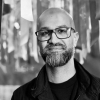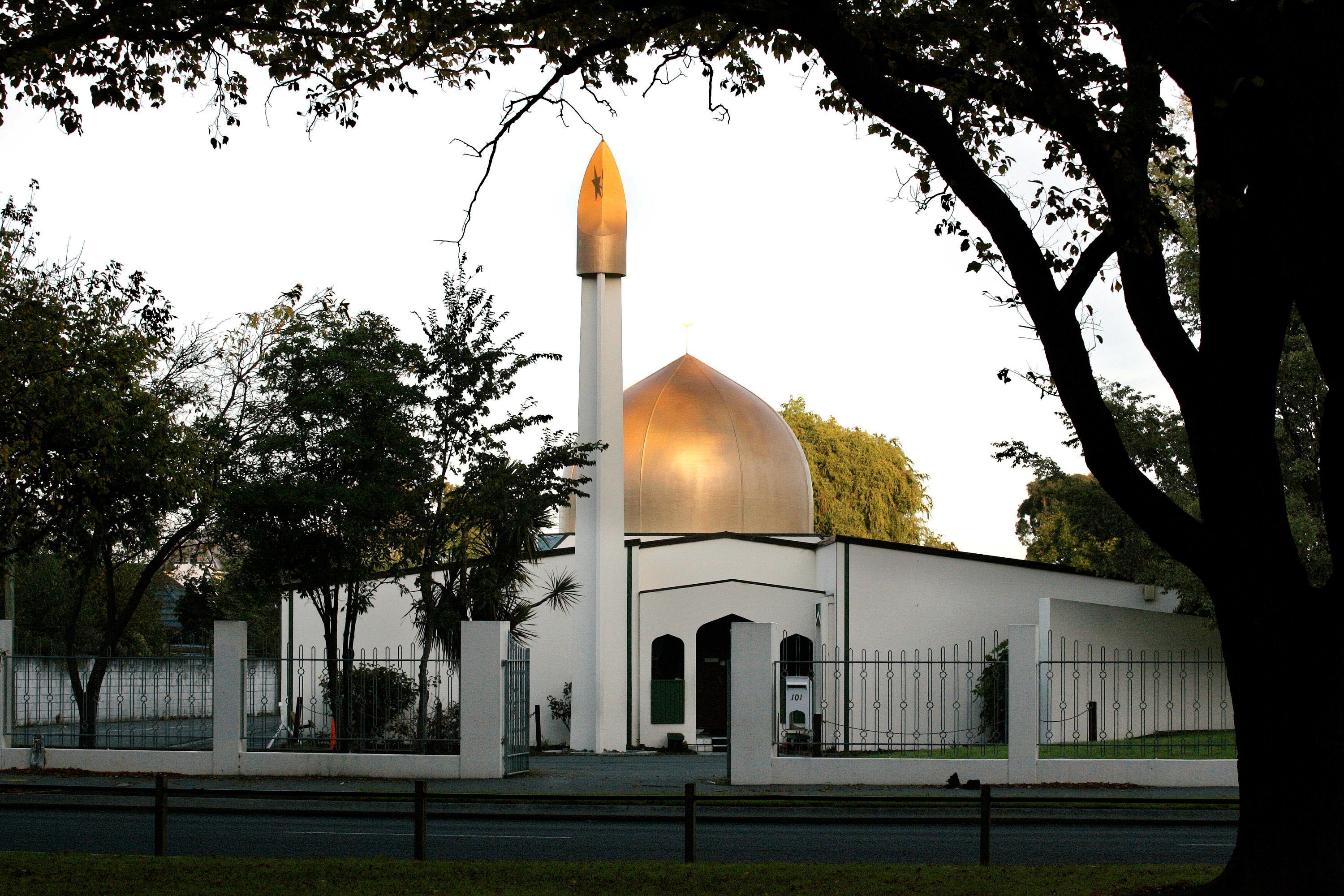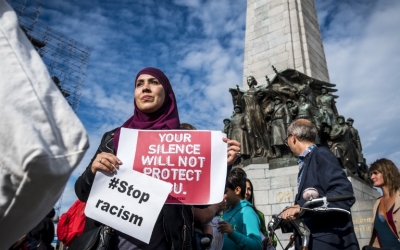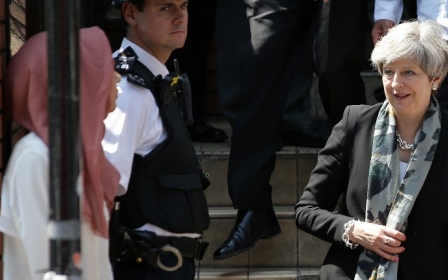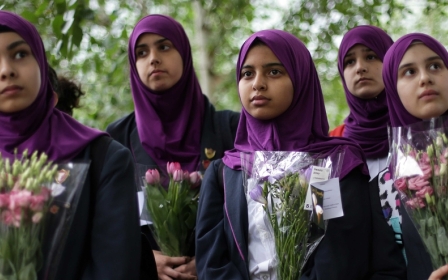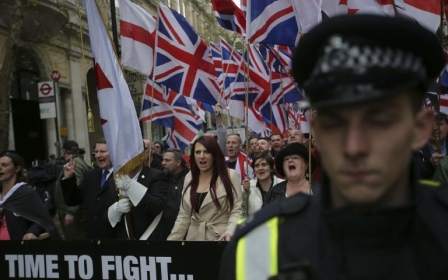The New Zealand mosques massacre and the denial of Muslim experience
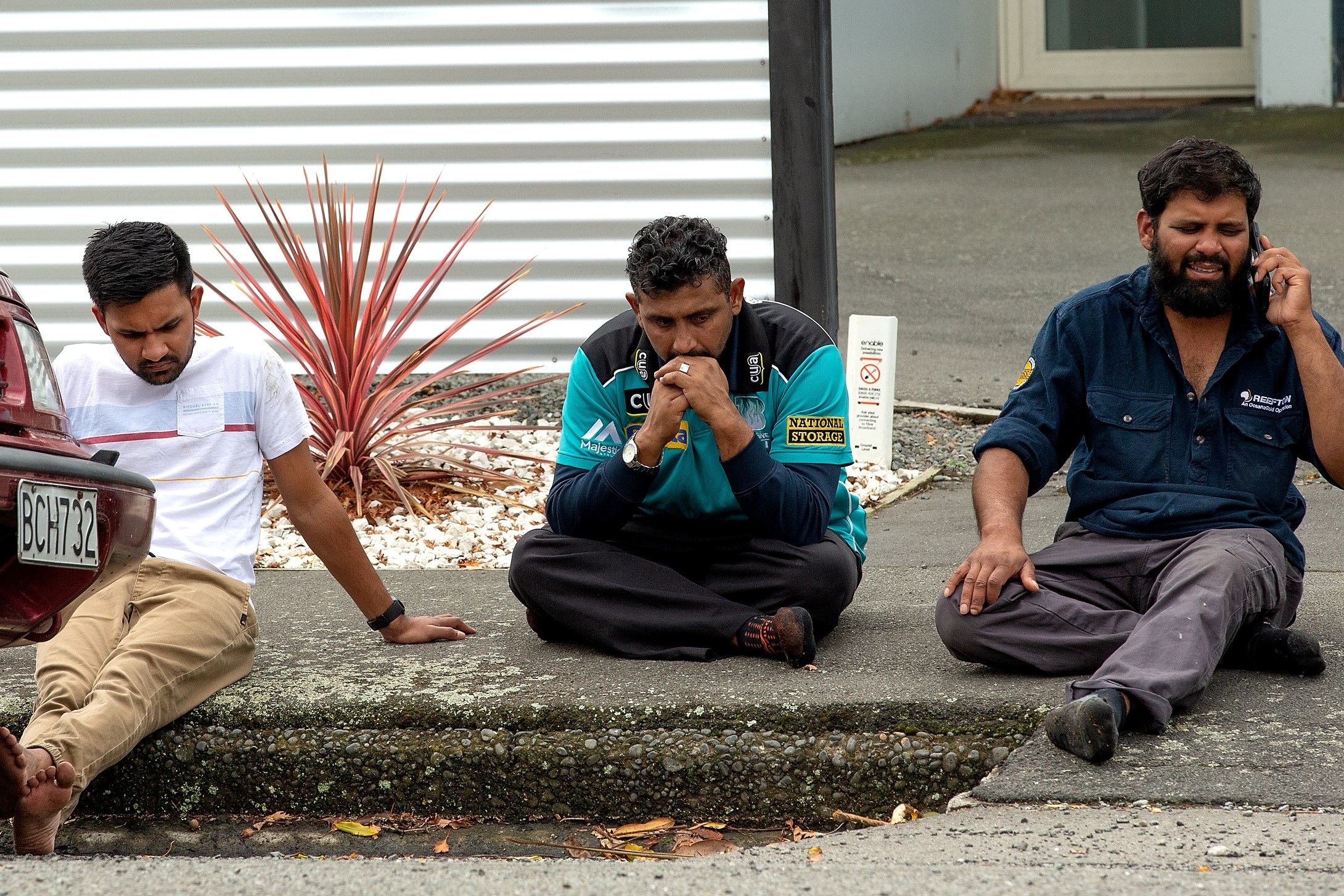
I can see them coming in, thick and fast, the narrowly defined parameters that tell us how to think about mass murder at a mosque filled with Muslim worshippers.
On Friday, a day when people know Muslims gather in large numbers to submit themselves to God, there is a play that has been staged - one that attempts to frame the violence outside of reality.
There is Act One, which is to remove the word "Muslim" from the equation. This is something that apparently has hurt all of New Zealand - except, of course, it was Muslims who were the targets. Note that tweets relating to the attack from US President Donald Trump, Israeli Prime Minister Benjamin Netanyahu and British Prime Minister Theresa May did not include the word "Muslim".
No doubt, the vast majority of New Zealand society is horrified and hurt by this moment, but let's not for a second wipe out the intended target in media coverage - something that has already begun to take place.
Centre the victims, centre their narrative, and then express sympathy and empathy. This performance that we were all equally impacted is not needed.
New MEE newsletter: Jerusalem Dispatch
Sign up to get the latest insights and analysis on Israel-Palestine, alongside Turkey Unpacked and other MEE newsletters
We are forced to think about this mass murder as an exception to the everyday. It is separated from all else
Act Two is to frame the violence as something exceptional - that this is somehow an aberration from the norm of the violence in society, of the far-right sentiment that exists.
Epistemic violence
Such narratives are in themselves violent, what scholar Gayatri Spivak might label as "epistemic violence". We are forced to think about this mass murder as an exception to the everyday. It is separated from all else.
This second act aims to deny us the understanding that these actions are connected to the political class, which is dog-whistling Muslims, immigrants and people of colour - particularly black people - every single day of the week.
It ignores the role played by the media, which is forever telling white people that their culture and way of life is under attack. It negates the roles played by the military, police and justice system in perpetuating narratives about the dangerous "other".
Narratives of violence
We then move on to Act Three, in which this violence is equated to violence that is carried out by Muslim groups involved in militancy around the world, or Muslim individuals involved in politically motivated violence.
We are told that somehow, these actions are mirror images of one another. Except, in the examples of Muslims living in Western countries that I know of, there is no hegemony of structures that Muslims own that perpetuate narratives of violence. Quite the contrary: our mosques and leaders regularly condemn terrorism and any acts of violence, attempting to provide guidance and leadership.
The violence of the far-right is routinely situated within the central concerns of mainstream dog-whistling, so to hear commentators equate the two is inaccurate and unconscionable.
The concluding act of this performance draws in experts, who tell the public and Muslims in particular how to think about the harm that has been caused against them.
Telling Muslims how to feel
In the UK, Mark Rowley, the former head of counter-terrorism and now at the security think tank RUSI, is asked about whether such a thing as Islamophobia even exists. Putting aside how disgraceful the question is, the response by Rowley is worth bearing in mind: "I think Islam isn't a race, it's a faith. I think that's some clumsy thinking."
What he does in this instance is to take the very real structural violence that takes place against Muslims every single day, and reduce its significance - even though as a white non-Muslim, he will never feel the violent effects of Islamophobia.
Coupled with this "telling Muslims how to feel," is the call for even more securitisation. The need for more pre-criminal programmes. Except, officials haven't been listening at all.
People of colour and Muslims have been joining hands for decades to speak about the racism of the everyday, the racism and Islamophobia that occur in the workplace, at the police station, on the streets, in front of the judge, within the media - and that has been ignored.
Rather, they want to give the impression that these things do not exist, and that actually it is only a small minority at fault here.
The thing is - that small minority was fed an invective of everyday racism, one that has never been adequately tackled in the Western world, as Europe, the US and Australasian countries refuse to recognise their long histories of violence and racism.
Without acknowledging those histories and trajectories, we will never be able to solve the violence in these societies; rather, it will only ever be a performance of empathy.
The views expressed in this article belong to the author and do not necessarily reflect the editorial policy of Middle East Eye.
Middle East Eye delivers independent and unrivalled coverage and analysis of the Middle East, North Africa and beyond. To learn more about republishing this content and the associated fees, please fill out this form. More about MEE can be found here.


